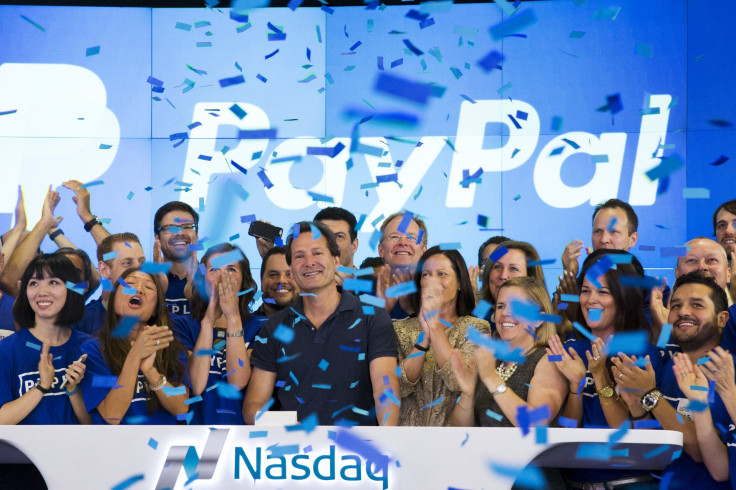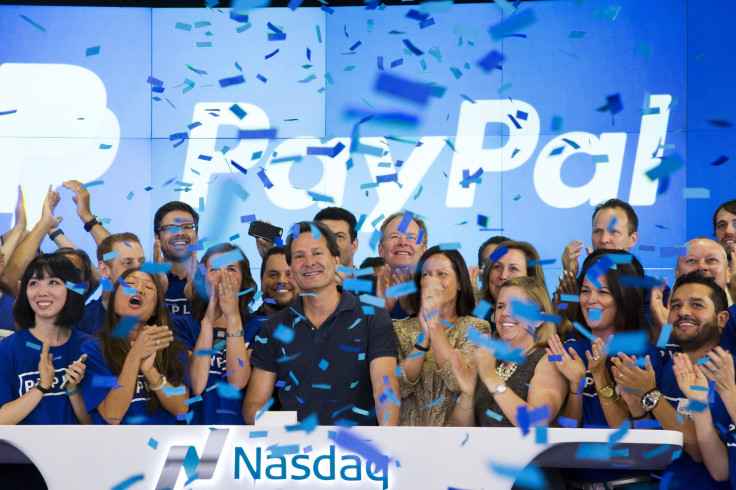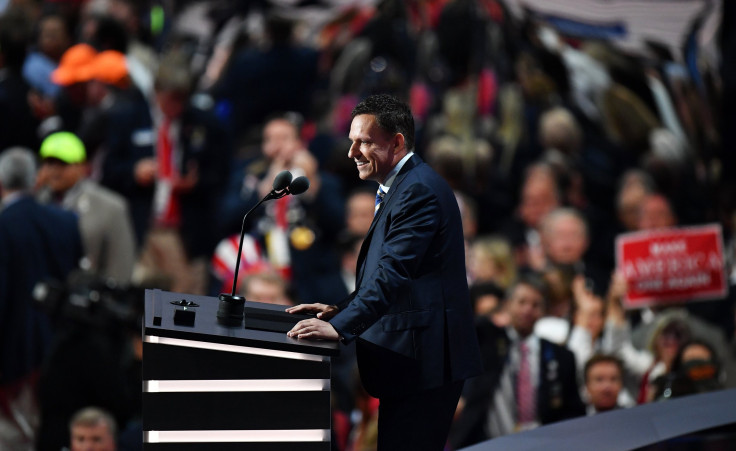PayPal Conquered The Globe, But Bitcoin Could Steal Its Throne
The same way Google dominates online searches, just one company now manages much of the mainstream e-commerce and electronic money swaps in the United States. The modern economic system we know today really emerged from the first European banks in the Middle Ages, when wealthy merchants such as the Medici family of Florence managed loans for royalty and religious leaders. These early banks fueled wars, intellectual movements and broadly shaped world history. Could we now be entering the era of PayPal?

Once upon a time, in 1998, PayPal was a little California-based software startup morphing into a money transfer service. It got acquired by eBay in 2002, focusing on peer-to-peer payments for independent eBay sellers. The fintech company split from eBay in 2015. Today, PayPal owns half a dozen brands such as the mobile app Venmo, the global remittance service Xoom and the payment processor Braintree. These subsidiaries manage payments for Macy’s, Hulu, Uber, Sephora, Airbnb and StubHub, just to name a few. Many fintech experts now consider PayPal to be among the world’s most influential corporations.
“They are one of the most important players in tech today,” Eric Jackson, CEO of the fintech startup CapLinked and author of “The PayPal Wars,” told International Business Times. “PayPal is kind of going under the radar, which is odd because they are extremely powerful.”
PayPal no longer has any independent, direct competitors. It works with 25 currencies across more than 200 countries. The payment processor Stripe could be seen as an alternative to Braintree. However, PayPal’s co-founders Peter Thiel, Max Levchin and Elon Musk are all among Stripe’s core investors. Former PayPal executive Keith Rabois also held a senior role at the rival fintech startup Square. Bernstein analyst Lisa Ellis reportedly said PayPal might soon acquire Square altogether.
On the other hand, PayPal’s overall strategy is working with major financial institutions and high-tech competitors instead of trying to convert users, from Apple Pay and Google wallet to JPMorgan Chase and Wells Fargo. Over the past two years, this aggressive partnership strategy turned PayPal into a global powerhouse.
According to a company spokesperson, PayPal now has 218 million active user accounts and 17 million merchant accounts worldwide. To put that in perspective, there are more active PayPal accounts than the entire populations of Brazil and Lebanon combined. Plus, the company directly employs around 18,100 people.

Most people still think about PayPal as a P2P app. However, it’s now more accurate to describe the fintech giant as a payments company with business services and a mobile wallet platform. PayPal Working Capital offers loans by using its own data to determine creditworthiness, regardless of traditional metrics. Users can send and deposit real cash through partners like Western Union and Rite Aid. Collaboration with Visa and Mastercard recently turned PayPal accounts into a core part of the credit card companies' global strategies.
“Our vision is to allow people to make payments anytime, anywhere. Our partnerships with PayPal and other players provide that opportunity,” Sherri Haymond, executive vice president of digital partnerships at Mastercard, told IBT. “We’re seen a significant lift in volume, and PayPal has as well, as a result of that choice platform being rolled out globally...it’s a great, symbiotic relationship.”
The choice platform she’s referring to is PayPal’s new hub feature, consolidating a user’s bank accounts and credit cards inside the PayPal mobile wallet. “If you want to use your Visa card or your Mastercard as your preferred method of payment, you can set it as your preferred way. And as you’re checking out, it will always be set as your default payment method,” Jim Magats, PayPal's head of global core payments, told IBT. “Now you can get your money out within minutes, directly to your bank account.”

Magats estimated PayPal made up to 30 major partnerships over the past 18 months. Some of these include deals with Facebook and Skype, letting users send money directly through the messaging platforms. The Facebook messenger feature can be used for paying businesses or sending money between friends. Meanwhile, PayPal is working to connect clients and users across its subsidiaries. For example, people can book an Uber ride directly through Facebook messenger.
It’s hard to imagine banks dominated the financial industry just 20 years ago. Now, PayPal is the queen bee of online payment processing, which represents a huge chunk of the global economy. BI Intelligence reports estimate online shopping will grow from $385 billion in 2016 to $632 billion in 2020.
“We found ourself in a very interesting position, where we knew mobile payments were about to take off,” Magats said. “We saw an opportunity then to shift from being a payment button to really being a payment platform… the mantra that we’ve tried to abide internally is: how can we be the platform of choice for all digital payments?”
Despite PayPal’s unmatched dominance in the global market, most experts aren’t concerned about the Silicon Valley giant becoming a monopoly. PayPal’s dependence on banks, credit card providers, Apple and Google keep it in check, at least politically speaking. It is a cooperative player in many of Silicon Valley’s most prominent lobbying groups, including the Internet Association. According to OpenSecrets.org, PayPal itself spent only $651,850 on lobbying American political groups so far in 2017.

“If they [PayPal] were truly monopolis they would be the wallet instead being a piece of the wallet that’s dependent on the relationship with these other companies that control the operating systems,” Jackson said. “Even though PayPal is the most powerful fintech company… with the rise of blockchain, cryptocurrency and other types of decentralized tech we are going to see other types of options emerge over the next five years.”
While PayPal conquers e-commerce, cryptocurrencies like bitcoin are rapidly changing the way people think about money. CNBC reported bitcoin’s global market cap now surpasses the value of both Goldman Sachs and Morgan Stanley, around $110 billion.
PayPal once had a short-lived partnership with the cryptocurrency exchange Coinbase, to support bitcoin payments. There was scant mainstream demand at the time, before this summer’s cryptocurrency boom hit, so the project quickly got shelved. “We are constantly monitoring and evaluating new forms of currency, but are focused right now on what merchants accept and what consumers use to pay,” a PayPal spokesperson told IBT.
All things considered, the future of finance appears to be a realm of mobile wallets with blockchain-based assets and fintech apps like PayPal. Banks are no longer the sole guardians of our wealth. Even beyond payments, PayPal also offers business loans and accounting tools. It is rapidly expanding mobile loan options. Reuters reported the company has lent more than $3 billion to 115,000 businesses as of August 2017.
“In the future, everybody will be managing their portfolios directly on their smart phones, with complete financial freedom,” Aaron Lasher, CMO of the cryptocurrency wallet provider Bread, told IBT. “PayPal originally wanted to create its own digital global currency, but were prohibited from doing so due to regulation… unless they incorporate digital currencies in their plan, they risk being left behind.”
These days, it’s hard to find a sector of commerce beyond PayPal’s reach. Its brands even process payments for tech-savvy in-store check out at participating businesses. Next the company is focused on deepening global ties and expanding its user base across borders, including new partnerships like the Village Capital Fintech Africa program. PayPal opened a new hub in New York City the first week of November, inviting startups and organizations like the World Economic Forum to use the space for meetings.
On the other hand, PayPal’s economic throne is not guaranteed. The cryptocurrency startup USTART launched a token sale on November 2 to crowdfund its new blockchain-based alternative to PayPal’s consumer services.
“I don’t think there’s a regulatory threat or a monopoly risk at this point,” Jackson said. “I think there’s ample room for competition through blockchain technology.”
© Copyright IBTimes 2025. All rights reserved.





















